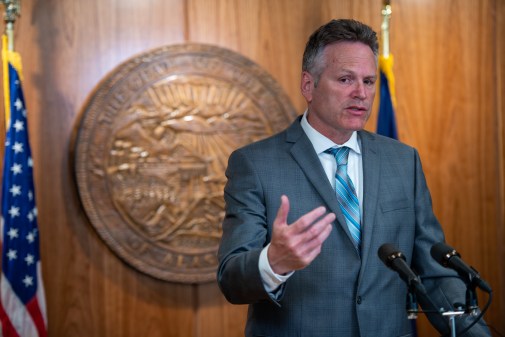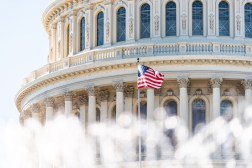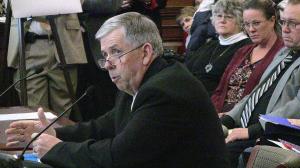Missouri governor signs virtual schools bill hours before resigning his seat

Students in Missouri’s public schools will be able to take online courses for free, thanks to legislation signed by scandal-plagued Gov. Eric Greitens on Friday, just hours before he resigned from office.
The Missouri Course Access and Virtual School Program will significantly expand online education for kids in K-12, while students’ district or charter schools pick up the tab. This will allow students in small, rural or underfunded schools that don’t have adequate teaching staff to take classes in advanced subjects such as Chinese or creative writing.
“Having this course access kind of gets rid of the education by ZIP code and opens up a wide variety of classes for all the students,” said Republican state Rep. Bryan Spencer, according to the St. Louis Post-Dispatch.
Greitens, who announced his resignation May 29 following a criminal investigation into his conduct involving a former mistress as well as possible campaign finance violations, faced pressure to leave quietly Friday without having any more impact on state legislation.
Instead, Greitens signed 77 bills into law on his last day as governor of Missouri, SB 603 among them.
House and Senate leaders in Missouri had already turned their focus on working with incoming Gov. Mike Parson. Parson was sworn in Friday afternoon, shortly after Greitens’ departure. The Kansas City Star reported that he has been in constant conversations with state lawmakers and other officials about his plans in the new role.
Critics of virtual education say the legislation, which sets no limit on the number of students enrolled in virtual schools, would essentially create publicly funded statewide virtual charter schools that are run by private companies.
“One of the concerns is that this will morph into virtual charter schools, where students aren’t students of the public school at all. Students can just enroll in it directly and the online provider will collect state aid,” said Susan Goldammer, an attorney and associate executive director with the Missouri School Boards’ Association, according to the Post-Dispatch.
Virtual schools have also been widely criticized for producing consistently low performance rates due to large school sizes and unmanageable student-to-teacher ratios.
An April study from the National Education Policy Center showed that about 36 percent of full-time virtual schools and 43 percent of blended learning schools received acceptable ratings, according to available data. It also reported that virtual schools had an average graduation rate of about 43 percent.
Still, enrollment in virtual schools surged by 17,000 students between the 2015-16 and 2016-17 school years, according to the analysis.
The new legislation will require the Missouri Department of Elementary and Secondary Education to publish an annual report showing student outcome data for the virtual school program.
Reach the reporter at corinne.lestch@edscoop.com and follow her on Twitter @clestch and @edscoop_news.




